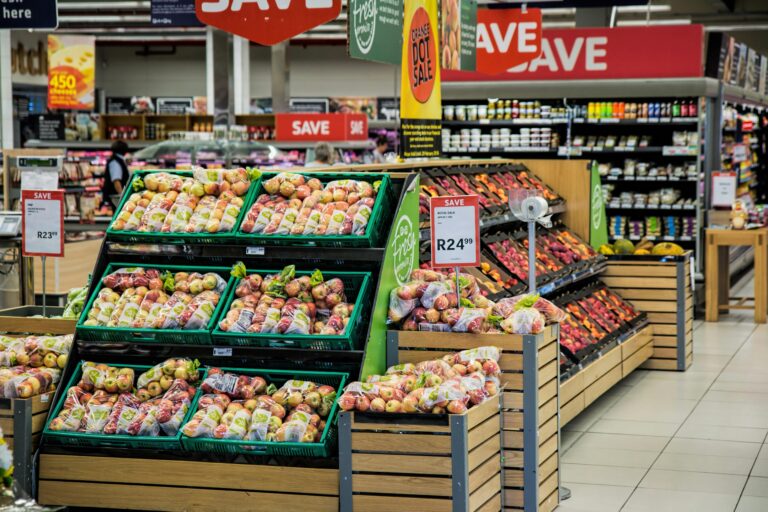PESTEL Analysis for Food Delivery Services: Case Studies
Exploring the intricate dynamics of the food delivery industry, this analysis examines Deliveroo, DoorDash, and Foodpanda through the lens of PESTEL factors, providing insights into how each factor impacts their operations across different global markets.
Case Study 1: Deliveroo
Political Factors
- Regulations and Licensing: Strict food delivery and safety regulations govern operations, with significant implications for compliance costs.
- Political Stability: Political unrest in operational regions can disrupt services and affect market stability.
Economic Factors
- Market Dynamics: Economic downturns impact consumer spending, affecting demand for luxury services like food delivery.
- Fuel Costs: Fluctuations in fuel prices significantly influence delivery costs and operational expenses.
Sociocultural Factors
- Dietary Trends: Increasing demand for dietary specific menus (e.g., vegan, gluten-free) shapes service offerings.
- Eating Habits: Cultural preferences influence peak times and popular menu items, requiring tailored marketing strategies.
Technological Factors
- Mobile Technology: Advancements improve user interface and app functionality, enhancing customer experience.
- Data Analytics: Leveraging consumer data helps optimize delivery routes and personalize marketing efforts.
Environmental Factors
- Sustainability Initiatives: Increased consumer awareness about environmental impact leads to initiatives for sustainable packaging and waste reduction.
- Carbon Footprint: Pressure to reduce emissions influences the use of electric vehicles and optimized delivery routes.
Legal Factors
- Employment Laws: Changing regulations around gig economy workers’ rights impact cost structures and operational models.
- Food Safety Regulations: Compliance with stringent food handling and safety standards is crucial to maintain licensure and consumer trust.
Case Study 2: DoorDash
Political Factors
- Employment and Licensing Laws: Local regulations, such as minimum wage requirements for delivery drivers, increase operational costs.
- Marketing Regulations: Adherence to local marketing laws is essential to avoid penalties and maintain brand reputation.
Economic Factors
- Economic Recession: Decreased consumer spending during economic downturns lowers demand for non-essential services.
- Input Costs: Rising prices for commodities affect overall operational expenses, influencing pricing strategies.
Sociocultural Factors
- Consumer Preferences: High demand for convenience drives growth, particularly in urban areas with fast-paced lifestyles.
- Health Consciousness: Growing consumer focus on health and wellness influences the demand for healthier food options.
Technological Factors
- Innovation in Delivery: Investment in drone technology and robotics potentially reduces delivery times and operational costs.
- Customer Interaction: Use of AI for enhanced customer service and personalized user experiences.
Environmental Factors
- Eco-Friendly Practices: Initiatives to reduce environmental impact through sustainable packaging and optimized logistics.
- Regulatory Compliance: Adhering to environmental laws and regulations is critical to avoid fines and support sustainability goals.
Legal Factors
- Data Protection: Compliance with global data protection laws like GDPR is essential for operations in multiple countries.
- Contractual Agreements: Legal obligations with partners and employees must be managed to avoid disputes and ensure smooth operations.
Case Study 3: Foodpanda
Political Factors
- Government Partnerships: Collaborative efforts with local governments can facilitate market entry and expansion.
- Regulatory Framework: Compliance with varied international food delivery regulations is necessary for seamless operations.
Economic Factors
- International Market Dynamics: Currency volatility affects profitability and requires strategic financial planning.
- Competitive Pressures: Intense competition in burgeoning markets necessitates innovative strategies to maintain market share.
Sociocultural Factors
- Cultural Diversity: Adapting to diverse culinary preferences and dietary restrictions across different regions is vital for customer satisfaction.
- Technological Adoption: Regions with high technological engagement show better adoption rates for online food delivery services.
Technological Factors
- Platform Usability: Continuous improvement of the mobile app and website interfaces is crucial to keep up with consumer expectations.
- Logistical Optimization: Use of advanced algorithms for efficient order processing and delivery logistics.
Environmental Factors
- Waste Management: Effective strategies are necessary to minimize food and packaging waste, aligning with global sustainability trends.
- Local Sourcing: Partnerships with local suppliers to reduce carbon emissions and support community businesses.
Legal Factors
- Employment Classification: Legal status of delivery personnel as independent contractors or employees affects operational decisions and costs.
- Consumer Rights: Ensuring compliance with consumer protection laws to maintain trust and avoid legal issues.
Conclusion
The comprehensive PESTEL analysis illustrates the multifaceted external factors impacting Deliveroo, DoorDash, and Foodpanda. Understanding these dynamics is crucial for these companies to navigate their complex environments effectively, tailor their strategies accordingly, and ensure sustainable growth in the competitive food delivery market.






